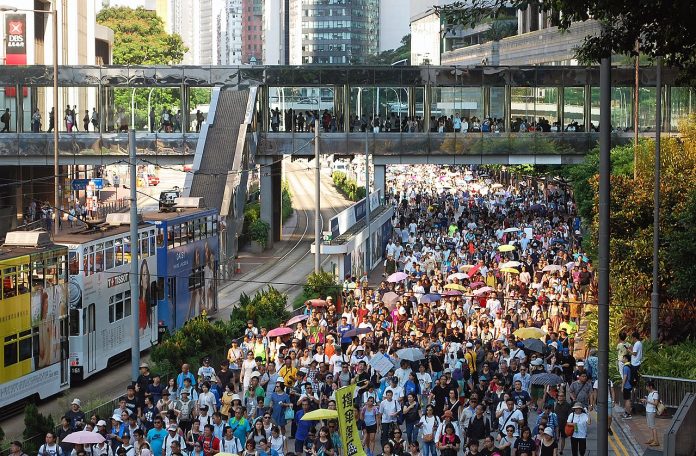The European Commission and the High Representative have adopted on 18 August the 25th annual report to the European Parliament and the Council on political and economic developments in the Hong Kong Special Administrative Region. This report covers developments in 2022.
2022 marked the 25th anniversary of the handover of Hong Kong to China and the second anniversary of the imposition of the National Security Law (NSL) on Hong Kong. The annual report illustrates the continued erosion of Hong Kong’s high degree of autonomy, democratic principles, and fundamental freedoms that were supposed to be protected until at least 2047. These developments cast further doubt on China’s commitment to the ‘one country, two systems’ principle.
Over the course of the year, law enforcement agencies continued to make arrests on national security grounds. As of 31 December 2022, 236 people had been arrested under the NSL and other security legislation while 145 individuals and 5 companies had been charged. The conviction rate was 100%. Many people were awaiting trial, including 47 pro-democracy activists who participated in a primary election, members of the now-disbanded Hong Kong Alliance in Support of Patriotic Democratic Movements of China, and Jimmy Lai. Many of them have been held in custody since January 2021, in some cases in solitary confinement. The colonial-era sedition law was used frequently in 2022. Around one fifth of the arrests by the national security police are made under this law. On 1 November, one EU national was arrested under the law.
In the fourth periodic review under the International Covenant on Civil and Political Rights in Hong Kong, the United Nations Human Rights Committee urged Hong Kong to repeal the current National Security Law. The Committee highlighted concerns regarding the possibility of transferring cases from Hong Kong to mainland China (which is not a state party to the Covenant) for investigation, prosecution, trial and execution of penalties.
Freedom of the press declined considerably in 2022. Journalists were arrested and charged, and numerous independent media outlets ceased operations. In the 2022 Reporters Without Borders world press freedom index, Hong Kong ranked 148th out of 180 locations, 68 places lower than the previous year.
Following the 2021 electoral overhaul, aimed to ensure that ‘patriots administer Hong Kong’, the first election of the Chief Executive took place on 8 May. Former police officer and Chief Secretary for Administration John Lee was the only candidate in the race. He received 99.2% of the valid votes and was sworn in on 1 July.
The annual report also highlights the substantial commercial links between the European Union and Hong Kong. With 1,600 companies, the EU remained the largest foreign business community. The EU was Hong Kong’s third-largest trading partner in goods. EU bilateral trade in services with Hong Kong grew by 25.1%. Two-way investment also remained significant.
Hong Kong’s economy fell back into recession in 2022, even though travel and health restrictions were gradually relaxed in the second part of the year. Hong Kong remained the world’s third-largest investment destination and was the world’s fifth-largest trading economy.
Since Hong Kong’s handover to the People’s Republic of China in 1997, the European Union and its Member States have closely followed political and economic developments in the Hong Kong Special Administrative Region under the ‘one country, two systems’ principle.
In line with the commitment given to the European Parliament in 1997, the European Commission and the High Representative issue an annual report on political and economic developments in Hong Kong.
The measures taken by the EU and Member States in response to the NSL in the Council Conclusions adopted in July 2020 remain in force. This package of measures included:
- a review of the asylum, migration, visa and residency policy, and of extradition agreements;
- scrutiny and limitation of exports of sensitive equipment;
- observation of trials; support for civil society;
- the possibility of more scholarships and academic exchanges;
- monitoring of the extraterritorial impact of the law; and
- the refraining from launching any new negotiations with Hong Kong.

